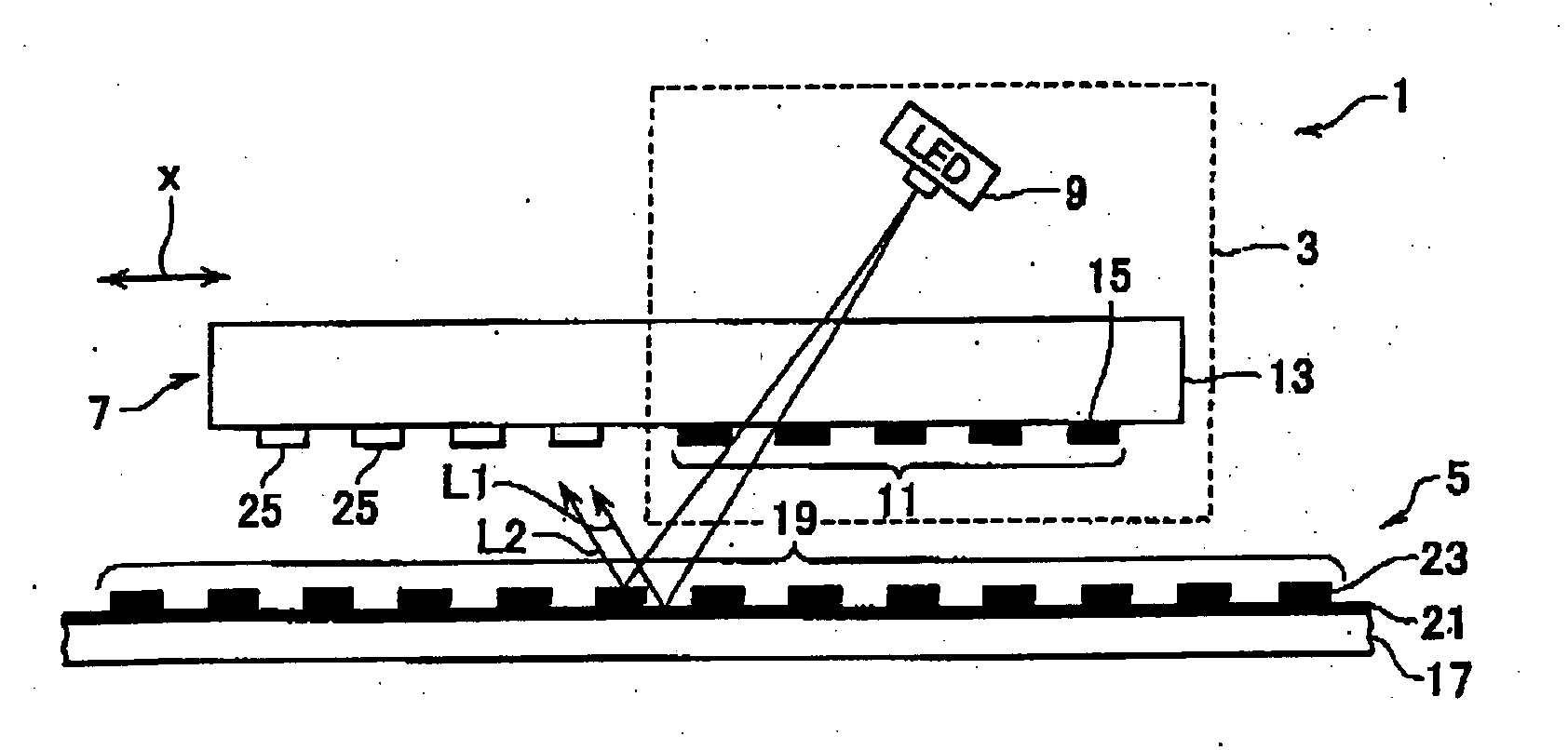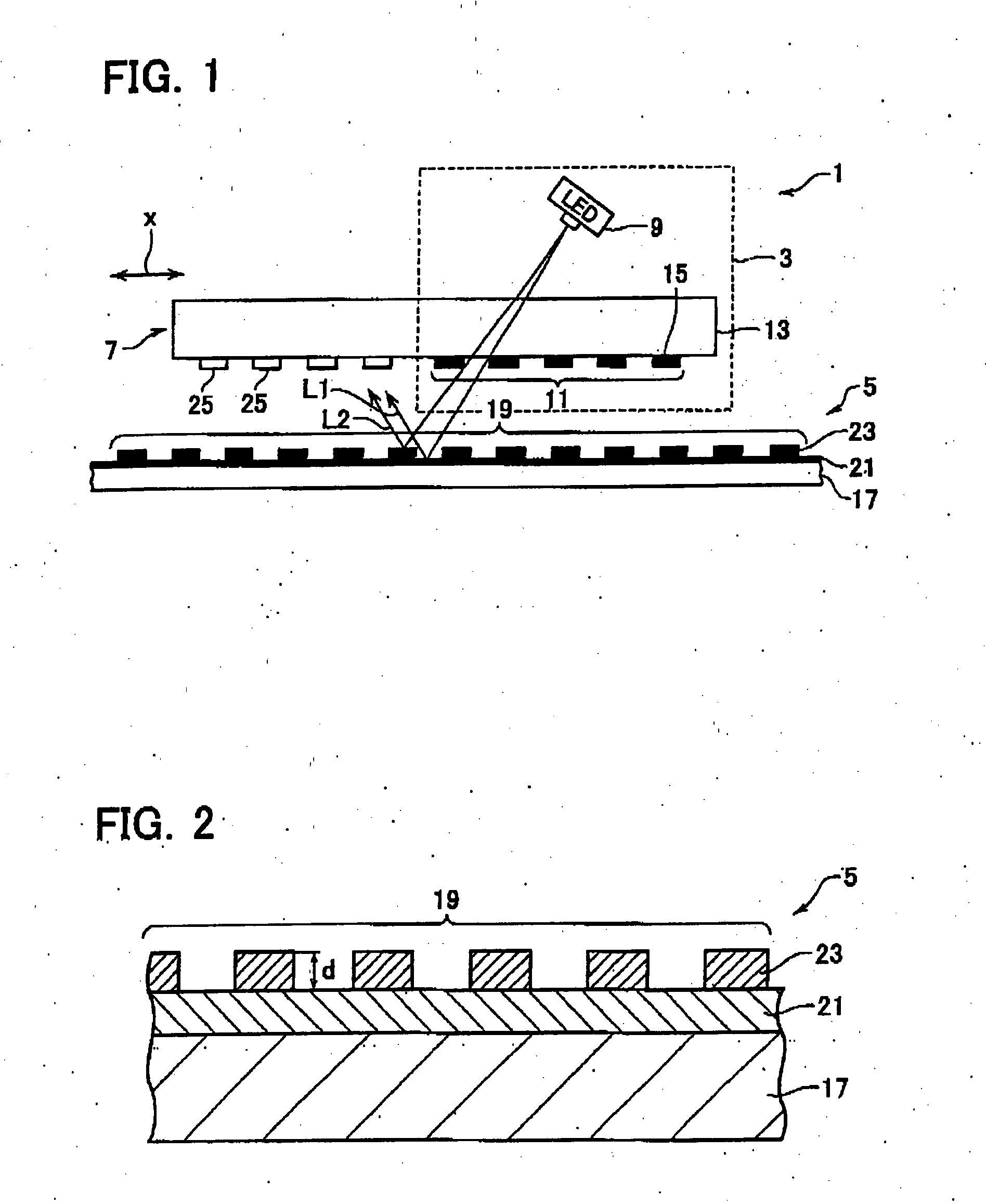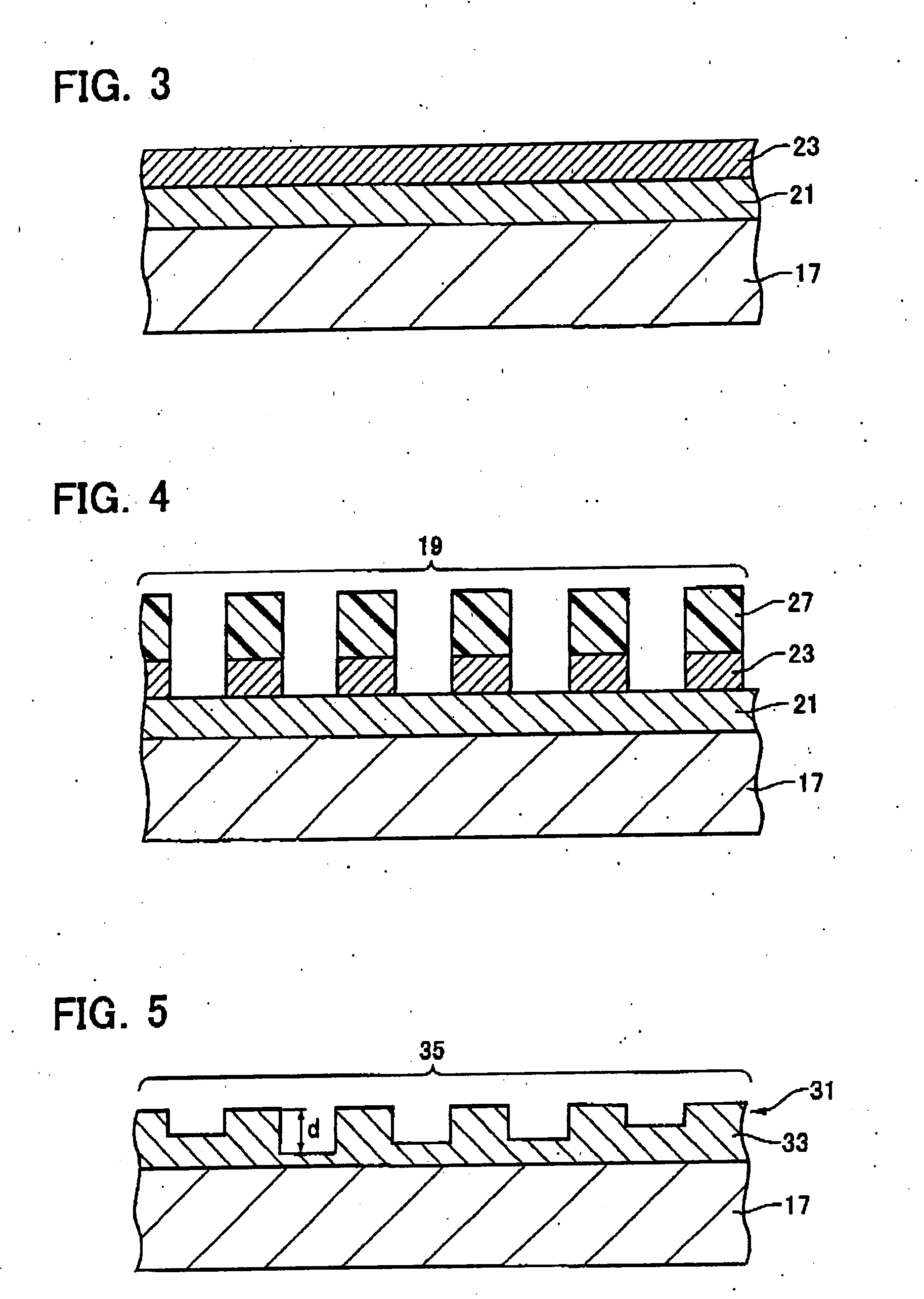Photoelectric encoder and method of manufacturing scales
a technology of encoder and scale, applied in the field of photoelectric encoder, can solve problems such as preventing improvements in measurement accuracy, and achieve the effect of improving controllability
- Summary
- Abstract
- Description
- Claims
- Application Information
AI Technical Summary
Benefits of technology
Problems solved by technology
Method used
Image
Examples
first embodiment
[0031] A first embodiment is mainly characterized by a reflective optical grating arranged on a scale in a photoelectric encoder. The grating includes a first metal layer (tungsten), and a second metal layer (chromium) having a plurality of portions formed on the first metal layer and arrayed at a certain pitch. First, the photoelectric encoder 1 according to the first embodiment is described about structure thereof. FIG. 1 illustrates a brief structure of the photoelectric encoder 1. The photoelectric encoder 1 comprises a light source 3, a scale 5 with an optical grating that is exposed to light emitted from the light source, and a photo receiver 7 arranged to receive light reflected from the optical grating.
[0032] The light source 3 includes a light-emitting diode (LED) 9. The light source 3 also includes an index grating 11 located at a position that is exposed to light from the light-emitting diode 9. The index grating 11 is formed on one of surfaces of an elongated transparen...
second embodiment
[0049] A second embodiment is mainly characterized by a reflective optical grating arranged on a scale in a photoelectric encoder. The grating includes a first metal layer (chromium), a second metal layer (tungsten) having a plurality of portions formed on the first metal layer and arrayed at a pitch, and a third metal layer (chromium) having a plurality of portions formed on the portions of the second metal layer. The second embodiment is described mainly on differences from the first embodiment. The same parts in the figures illustrative of the second embodiment as those in the figures illustrative of the first embodiment are given the same reference numerals to omit their duplicate description.
[0050]FIG. 6 is an enlarged cross-sectional view of part of the scale 5 according to the second embodiment, which corresponds to FIG. 2. The portions of the third metal layer 29 are formed on the portions of the second metal layer 23. The first metal layer 21 is composed of a material of c...
third embodiment
[0055]FIG. 9 is an enlarged cross-sectional view of part of a scale 5 according to a third embodiment. The third embodiment is characterized in that an optical grating 19, or a phase grating, has a sidewall angle (edge angle) θ larger than 80 degrees and smaller than 90 degrees. The scale 5 according to the third embodiment is made on the basis of experiments performed by the Inventor(s) of the present invention et al.
[0056] Preferably, the optical grating 19 can achieve higher diffraction efficiency and is robust against variations in grating shape and dimension. The Inventor(s) et al. employ a commercially available program for simulation of the diffraction effect to obtain the shape and dimension of the optical grating that can achieve such the affect.
[0057] The scale 5 employed in the simulation is described with reference to FIG. 9. On the surface of a substrate 17 composed of glass, a first metal layer 21 serving as a reflecting film is disposed. Only on the upper surface of...
PUM
| Property | Measurement | Unit |
|---|---|---|
| sidewall angle | aaaaa | aaaaa |
| sidewall angle | aaaaa | aaaaa |
| thickness | aaaaa | aaaaa |
Abstract
Description
Claims
Application Information
 Login to View More
Login to View More - R&D
- Intellectual Property
- Life Sciences
- Materials
- Tech Scout
- Unparalleled Data Quality
- Higher Quality Content
- 60% Fewer Hallucinations
Browse by: Latest US Patents, China's latest patents, Technical Efficacy Thesaurus, Application Domain, Technology Topic, Popular Technical Reports.
© 2025 PatSnap. All rights reserved.Legal|Privacy policy|Modern Slavery Act Transparency Statement|Sitemap|About US| Contact US: help@patsnap.com



